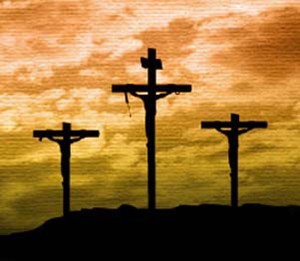
Preacher of the Cross: John Henry Newman
And she will have a son, and you are to name him Jesus, for he will save his people from their sins.
Matt. 1:21 NLT
John Henry Newman was born in England on February 21, 1801 and he died on August 11, 1890. Newman was ordained an Anglican priest on Trinity Sunday, June 13, 1824, and later was received into Roman Catholic Church in 1845. Newman’s preaching ministry was well known throughout England. Newman faithfully taught at St. Mary’s chapel at Oxford serving in the capacity of vicar. Newman’s sermons are collected in ten volumes; they are just a sample of the over 1,000 sermons he preached. His most popular set of sermons is the Parochial and Plain Sermons (eight volumes) still available through Ignatius Press. In his day, Also Sermons Bearing on Subjects of the Day and Fifteen Sermons Preached Before the University of Oxford were published. These ten volumes make up the corpus of Newman’s Anglican ministry.
Even a devout Baptist, Warren Wiersbe, describes Newman’s preaching in glowing terms. “Newman can help teach us how to preach to a man’s conscience, how to get beneath the surface and apply spiritual truth where it is needed.” [Warren Wiersbe, Walking with the Giants (Grand Rapids, MI: Baker Book House, 1998), 23]
Newman’s ability to paint pictures and make startling contrasts in order to bring a spiritual truth to bear on the conscience was his greatest gift. The following quotation from Newman’s sermon, “The Crucifixion,” displays his aptitude at mastering powerful truths, and then insightfully, applying those truths directly to the struggles of a parishioner’s heart. In this sermon, Newman compares the innocence of a mistreated child with the holiness of Christ in the midst of his Passion.
How overpowered should we be, nay not at the sight only, but at the very hearing of cruelties shown to a little child, and why so? For the same two reasons, because it was so innocent, and because it was so unable to defend itself. I do not like to go into the details of such cruelty, they would be so heart-rending. What if wicked men took and crucified a young child? What if they deliberately seized its poor little frame, and stretched out its arms, nailed them to a cross bar of wood, drove a stake through its two feet, and fastened them to a beam, and so left it to die? … O, my brethren, you feel the horror of this, and yet you can bear to read of Christ’s sufferings without horror; for what is that little child’s agony to His? And which deserved it more? Which is the more innocent? Which the holier? Was He not gentler, sweeter, meeker, more tender, more loving, than any little child? Why are you shocked at the one, why are you not shocked at the other?
John Henry Newman, “The Crucifixion”






